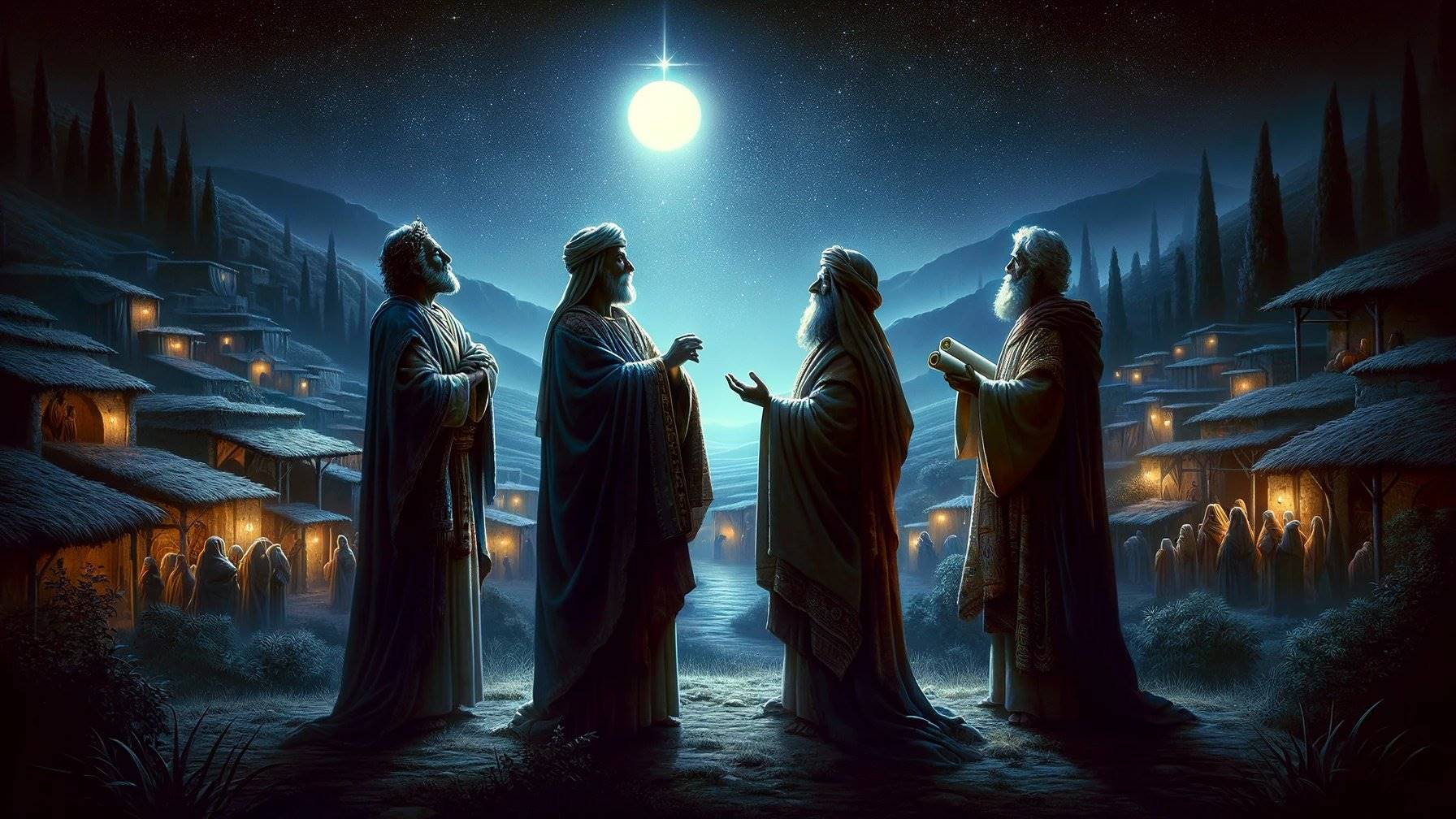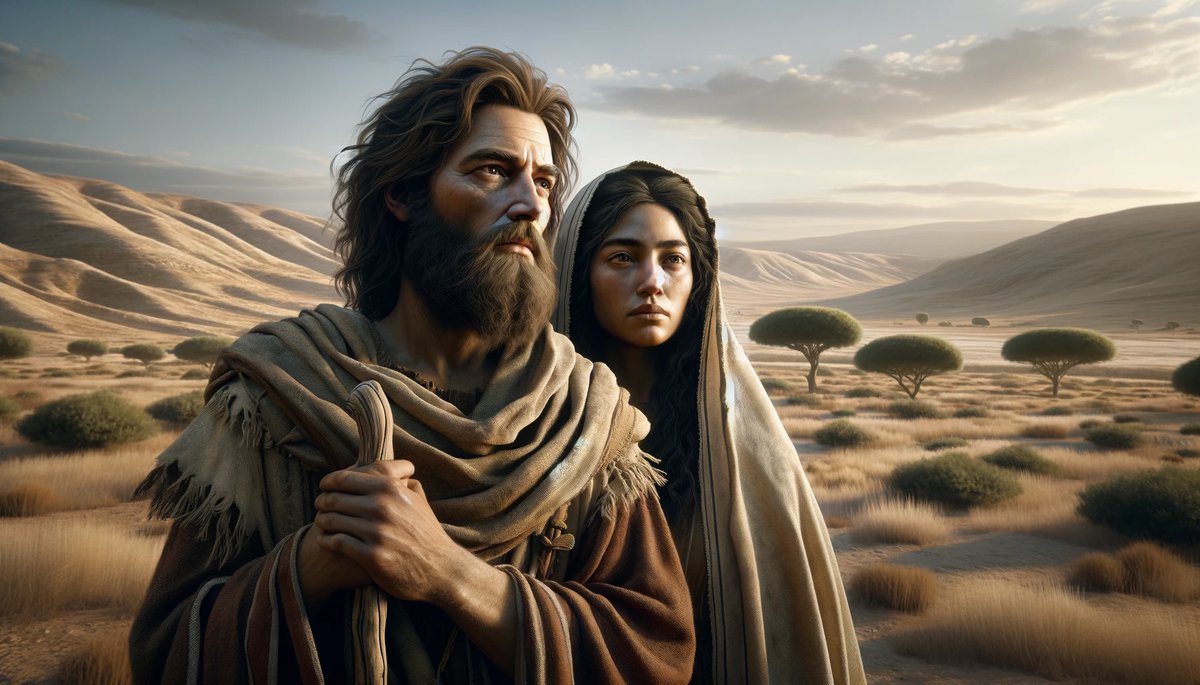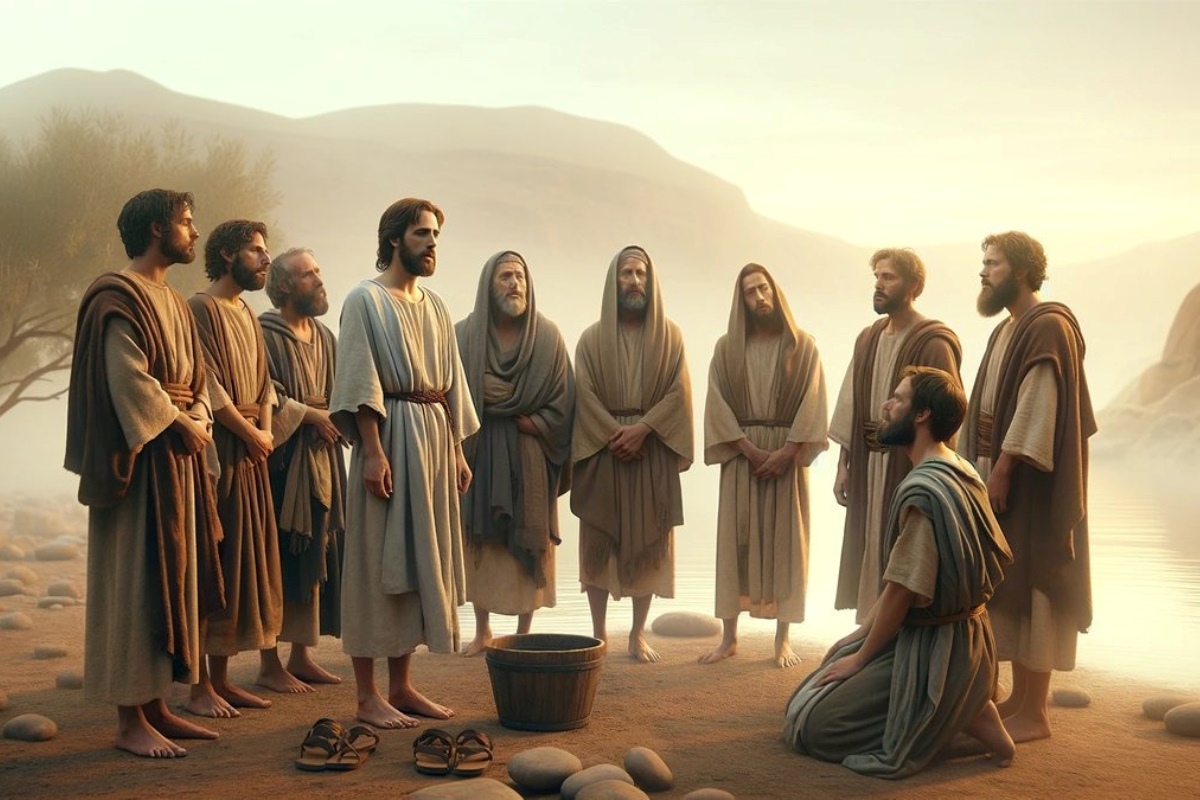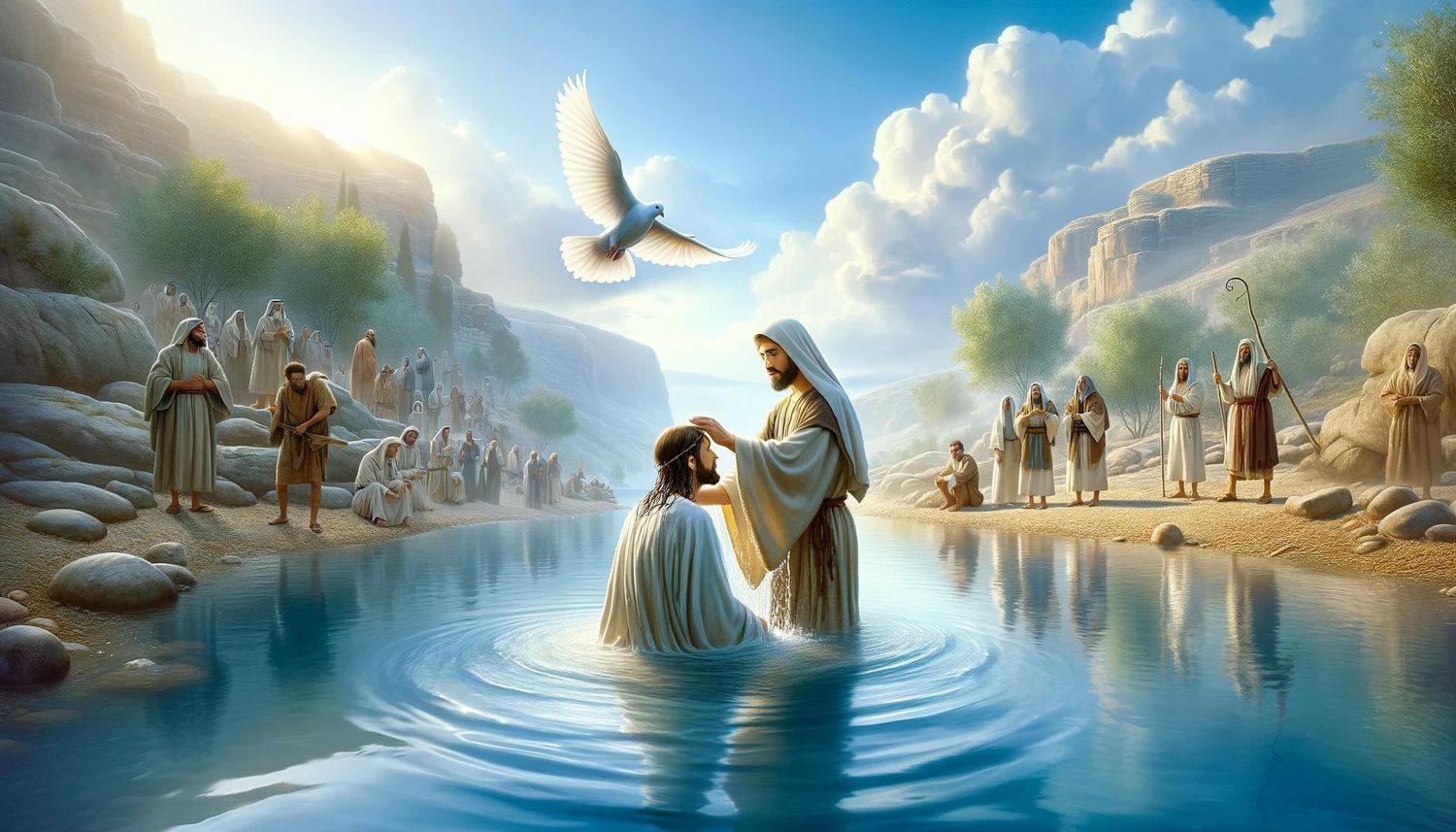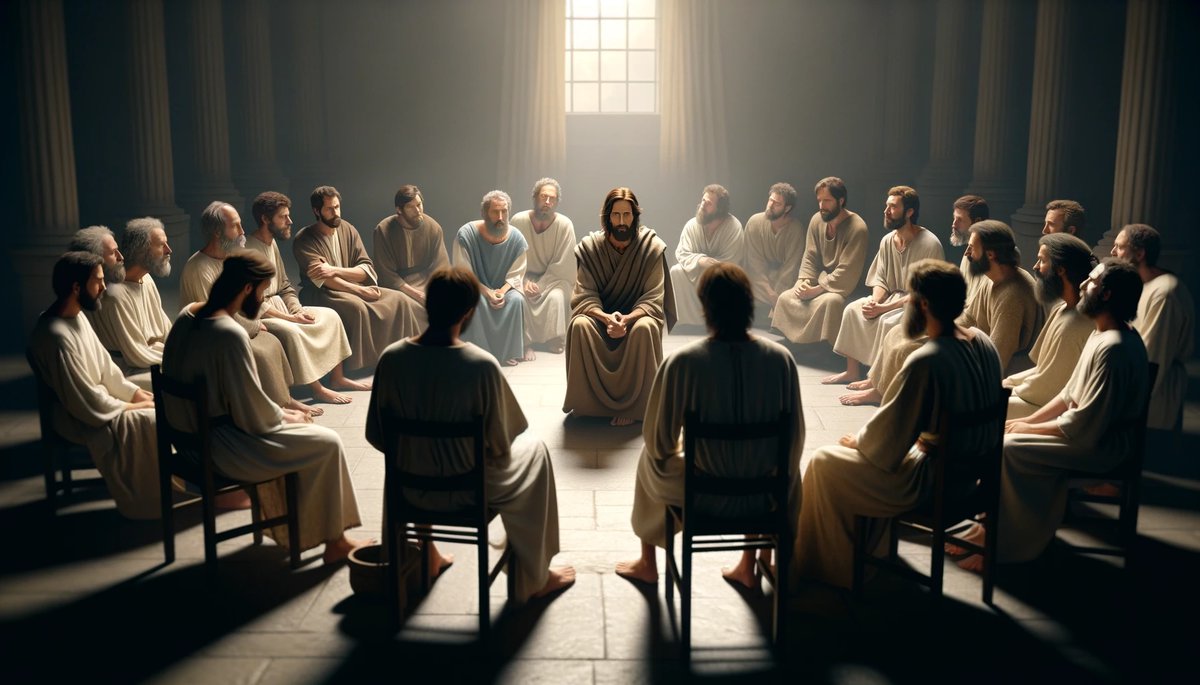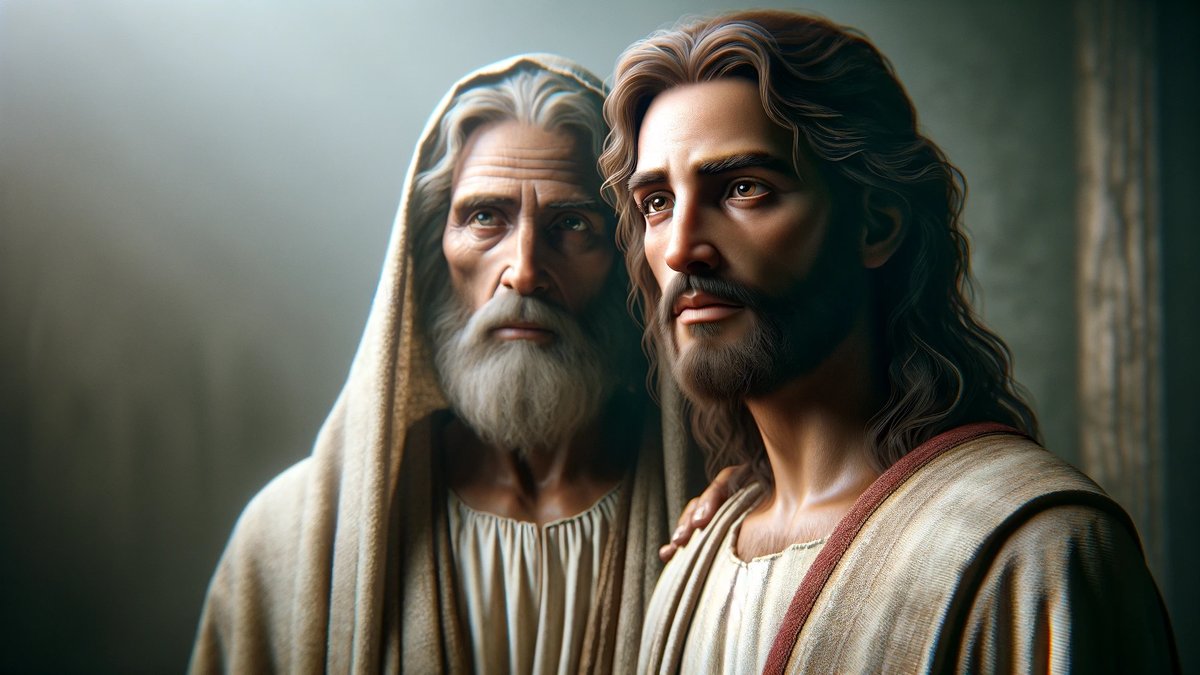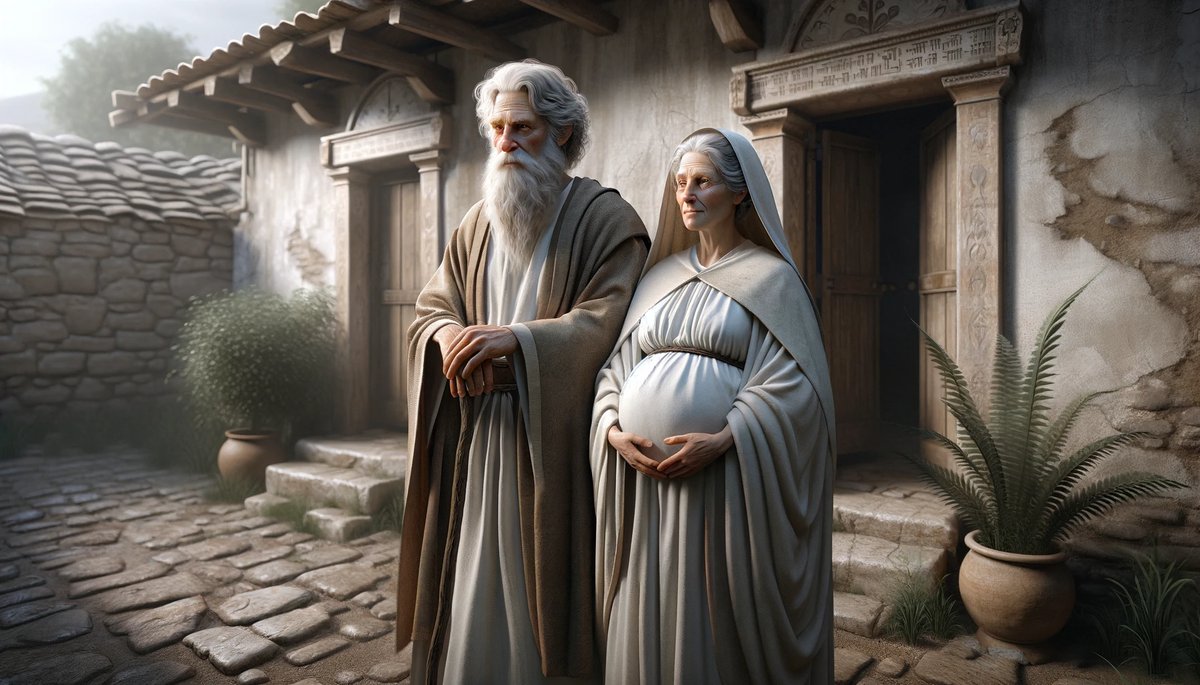Home>Theology and Spirituality>Who Prophesied About John The Baptist


Theology and Spirituality
Who Prophesied About John The Baptist
Published: February 20, 2024
Peter Smith, Editorial Director at Christian.net, combines deep insights into faith, politics, and culture to lead content creation that resonates widely. Awarded for his contributions to religious discourse, he previously headed a major organization for religious communicators, enhancing dialogue on faith's societal impacts.
Discover the prophetic insights about John the Baptist in this insightful exploration of theology and spirituality. Uncover the significance of his role in the grand narrative of faith.
(Many of the links in this article redirect to a specific reviewed product. Your purchase of these products through affiliate links helps to generate commission for Christian.net, at no extra cost. Learn more)
Table of Contents
Introduction
The figure of John the Baptist holds a significant place in the Christian faith, revered for his pivotal role in preparing the way for the ministry of Jesus Christ. His life and mission were foretold in the Old Testament, where prophecies provided insight into his purpose and impact. Exploring these prophecies not only sheds light on the divine orchestration of events but also deepens our understanding of the interconnectedness of biblical narratives.
As we delve into the prophecies concerning John the Baptist, we embark on a journey through the ancient texts that foreshadowed his arrival and mission. These prophecies serve as a testament to the divine plan unfolding across centuries, culminating in the fulfillment of God's promises through the birth and ministry of John the Baptist.
The prophecies surrounding John the Baptist offer a glimpse into the intricate tapestry of biblical history, where threads of anticipation and fulfillment are woven together with divine precision. By examining these prophecies, we gain a profound appreciation for the continuity of God's plan and the profound significance of John the Baptist's role in preparing the way for the Messiah.
In the subsequent sections, we will explore the prophecies in the Old Testament that specifically reference John the Baptist, unraveling the profound foresight embedded within these ancient texts. Through this exploration, we will uncover the rich tapestry of prophetic insight that spans across generations, ultimately converging on the emergence of John the Baptist as a pivotal figure in the narrative of redemption and salvation.
Read more: Who Prophesied About John The Baptist?
Prophecies in the Old Testament
The Old Testament serves as a treasure trove of prophecies that foreshadow the coming of John the Baptist, offering profound insights into the divine orchestration of events across centuries. These prophecies, dispersed throughout various books of the Old Testament, collectively paint a vivid portrait of the precursor to the Messiah, whose life and ministry would herald a new era of spiritual awakening.
The prophetic anticipation of John the Baptist's arrival can be traced back to the book of Isaiah, where the prophet Isaiah foretold the emergence of a voice crying out in the wilderness, exhorting the people to prepare the way of the Lord and make straight in the desert a highway for our God. This poignant prophecy, found in Isaiah 40:3, encapsulates the essence of John the Baptist's mission as a herald of repentance and spiritual readiness, paving the way for the imminent arrival of Jesus Christ.
Furthermore, the book of Malachi, the final book of the Old Testament, contains a compelling prophecy regarding the coming of a messenger who would prepare the way before the Lord. This prophecy, articulated in Malachi 3:1, resonates with profound significance as it anticipates the arrival of John the Baptist as the messenger entrusted with the sacred task of preparing hearts for the ministry of Jesus Christ.
The prophecies in the Old Testament not only provide a glimpse into the divine foresight that permeates biblical history but also underscore the interconnectedness of the Old and New Testaments. These prophecies serve as a testament to the continuity of God's redemptive plan, where the threads of anticipation woven in the Old Testament find their fulfillment in the New Testament, culminating in the life and ministry of John the Baptist.
As we immerse ourselves in the prophetic tapestry of the Old Testament, we are invited to marvel at the intricate precision with which God's plan unfolds, transcending the boundaries of time and space. The prophecies concerning John the Baptist stand as a testament to the divine wisdom that orchestrates the course of history, shaping the narrative of salvation with unparalleled foresight and purpose.
In the subsequent sections, we will delve deeper into specific prophecies in the Old Testament, unraveling their profound implications and illuminating the timeless relevance of these ancient revelations in the context of John the Baptist's pivotal role in the unfolding drama of redemption.
Isaiah's Prophecy
Isaiah, often hailed as the prince of prophets, bestowed upon the world a prophecy that resonated across the corridors of time, heralding the advent of a transformative figure. In the 40th chapter of the book of Isaiah, amidst the backdrop of a tumultuous era, the prophet's voice reverberated with divine proclamation, foretelling the emergence of a herald whose clarion call would resound through the wilderness, preparing the hearts of the people for the imminent arrival of the Lord.
The prophecy, encapsulated in Isaiah 40:3, unfolds with striking imagery, depicting a voice crying out in the wilderness, exhorting the people to prepare the way of the Lord and make straight in the desert a highway for our God. This evocative imagery conjures a vivid portrayal of a figure whose mission transcends the confines of conventional proclamation, resonating with an urgency that pierces through the spiritual inertia of the age.
Isaiah's prophecy serves as a poignant prelude to the ministry of John the Baptist, whose life and mission embodied the essence of the prophetic proclamation. The wilderness, symbolic of spiritual barrenness and desolation, becomes the hallowed ground where the voice of the herald reverberates, heralding a message of repentance and spiritual readiness. The call to prepare the way of the Lord echoes with resounding significance, heralding a paradigm shift in the spiritual landscape as hearts are stirred and lives are transformed in anticipation of the Messiah's arrival.
The imagery of making straight in the desert a highway for our God evokes a profound sense of purpose and preparation, portraying the transformative impact of the herald's mission in paving the way for the divine visitation. It speaks to the intrinsic role of John the Baptist as the harbinger of a new era, where the crooked paths of human frailty are straightened, and the rough terrain of spiritual apathy is smoothed in readiness for the arrival of the long-awaited Messiah.
Isaiah's prophecy, with its evocative imagery and profound significance, stands as a testament to the divine foresight that permeates the tapestry of biblical history. It serves as a timeless beacon, illuminating the path of spiritual preparedness and heralding the dawn of a new era, where the voice crying out in the wilderness finds resonance in the ministry of John the Baptist, preparing the hearts of humanity for the redemptive mission of Jesus Christ.
Malachi's Prophecy
The book of Malachi, the final prophetic voice in the Old Testament, resounds with a compelling prophecy that reverberates across the annals of biblical history, heralding the advent of a transformative messenger. In Malachi 3:1, the prophet unveils a profound revelation, declaring, "Behold, I send my messenger, and he will prepare the way before me." This prophetic utterance encapsulates the anticipation of a herald entrusted with the sacred task of preparing the hearts of the people for the imminent arrival of the Lord.
The imagery evoked in Malachi's prophecy resonates with a sense of divine urgency, portraying the imminent dispatch of a messenger who would serve as the vanguard of spiritual readiness. The profound significance of this prophecy lies in its foresight regarding the role of the messenger in paving the way for the divine visitation, underscoring the pivotal nature of his mission in heralding a new era of spiritual awakening.
As the final prophetic voice in the Old Testament, Malachi's proclamation serves as a poignant prelude to the ministry of John the Baptist, whose life and mission embodied the essence of the prophetic anticipation articulated in this ancient prophecy. The messenger foretold in Malachi's prophecy finds his embodiment in the figure of John the Baptist, whose clarion call to repentance and spiritual preparedness reverberated through the wilderness, echoing the timeless echoes of divine proclamation.
The imagery of preparing the way before the Lord encapsulates the sacred duty entrusted to the messenger, signifying the profound impact of his mission in fostering a climate of spiritual receptivity and anticipation. This imagery resonates with the transformative essence of John the Baptist's ministry, as he exhorted the people to repent and realign their hearts in readiness for the imminent arrival of Jesus Christ, the long-awaited Messiah.
Malachi's prophecy stands as a testament to the divine wisdom that permeates the tapestry of biblical history, underscoring the interconnectedness of prophetic revelations across the Old and New Testaments. It serves as a timeless beacon, illuminating the path of spiritual preparedness and heralding the dawn of a new era, where the messenger sent to prepare the way finds fulfillment in the ministry of John the Baptist, shaping the narrative of redemption with unparalleled foresight and purpose.
Other References to John the Baptist in the Old Testament
While the prophecies in the books of Isaiah and Malachi distinctly anticipate the arrival and mission of John the Baptist, there are additional allusions and symbolic parallels in the Old Testament that resonate with the life and ministry of this enigmatic figure. These subtle references, though not explicit prophecies, enrich the tapestry of biblical narratives and offer profound insights into the interconnectedness of divine revelations across different epochs.
One such compelling parallel is found in the account of Elijah, the revered prophet of the Old Testament. The resemblance between Elijah and John the Baptist extends beyond mere coincidence, as both figures exemplify a fervent commitment to calling the people to repentance and spiritual renewal. The striking parallels between their lives, including their attire and ascetic lifestyles, evoke a profound sense of continuity in the prophetic tradition, underscoring the timeless relevance of their respective missions in heralding a transformative message.
Furthermore, the symbolic significance of the wilderness as a backdrop for John the Baptist's ministry finds resonance in the narratives of the Old Testament, particularly in the accounts of the Israelites' journey through the wilderness. The wilderness, often depicted as a site of spiritual testing and purification, serves as a poignant backdrop for John the Baptist's proclamation of repentance and spiritual readiness, echoing the profound themes of renewal and preparation embedded in the Old Testament narratives.
Additionally, the motif of the voice crying out in the wilderness, as prophesied in Isaiah, finds echoes in the Psalms, where the imagery of the wilderness and the call to prepare the way for the Lord reverberate with timeless significance. These subtle echoes serve to intertwine the prophetic anticipation of John the Baptist with the broader tapestry of Old Testament themes, weaving a seamless narrative that spans across generations and prophetic utterances.
The allusions and symbolic parallels to John the Baptist in the Old Testament enrich our understanding of his profound role in the grand narrative of redemption. They serve as poignant reminders of the interconnectedness of divine revelations, transcending temporal boundaries and converging on the emergence of John the Baptist as a pivotal figure in preparing the hearts of humanity for the ministry of Jesus Christ.
Read more: Who Prophesied John The Baptist
Conclusion
In conclusion, the prophecies in the Old Testament pertaining to John the Baptist stand as a testament to the divine foresight and intricate tapestry of biblical history. The anticipation of John the Baptist's arrival, articulated through the prophetic voices of Isaiah and Malachi, resonates with profound significance, underscoring the interconnectedness of divine revelations across different epochs. The imagery of a voice crying out in the wilderness, preparing the way for the Lord, evokes a sense of divine urgency and purpose, heralding the dawn of a new era of spiritual awakening.
Isaiah's prophecy, with its evocative imagery and timeless relevance, serves as a poignant prelude to the ministry of John the Baptist, encapsulating the essence of his mission as a herald of repentance and spiritual readiness. The wilderness, symbolic of spiritual desolation, becomes the sacred ground where the voice of the herald resounds, paving the way for the imminent arrival of the Messiah. Similarly, Malachi's prophecy, with its anticipation of a messenger preparing the way before the Lord, enriches our understanding of John the Baptist's pivotal role in shaping the narrative of redemption.
Furthermore, the subtle references and symbolic parallels in the Old Testament, including the resemblance to Elijah and the thematic significance of the wilderness, weave a seamless narrative that intertwines the anticipation of John the Baptist with the broader tapestry of biblical themes. These echoes serve to underscore the continuity of prophetic traditions and the timeless relevance of John the Baptist's mission in heralding a transformative message of repentance and spiritual renewal.
As we reflect on the prophecies concerning John the Baptist, we are invited to marvel at the divine wisdom that orchestrates the course of history, shaping the narrative of salvation with unparalleled foresight and purpose. The prophecies in the Old Testament not only foreshadow the arrival of John the Baptist but also illuminate the profound interconnectedness of biblical narratives, culminating in the fulfillment of God's promises through the birth and ministry of John the Baptist.
In essence, the prophecies in the Old Testament serve as a testament to the continuity of God's redemptive plan, where the threads of anticipation woven in ancient times find their fulfillment in the ministry of John the Baptist, ultimately converging on the redemptive mission of Jesus Christ. Through the exploration of these prophecies, we gain a deeper appreciation for the divine orchestration of events and the profound significance of John the Baptist's role in preparing the way for the Messiah, illuminating the path of spiritual preparedness and heralding the dawn of a new era in the grand narrative of redemption.
